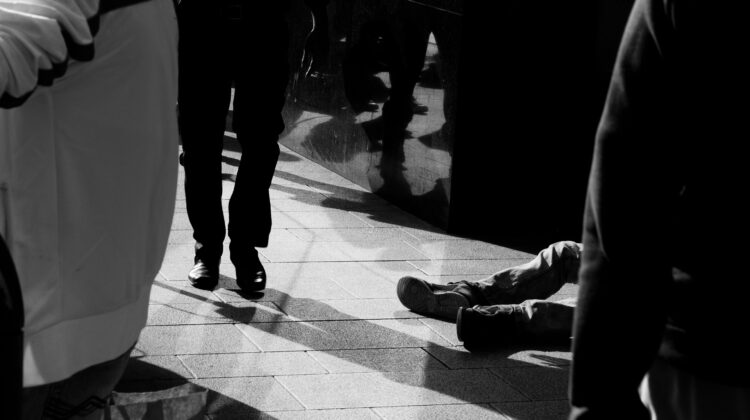
Denver helps homeless people with unconditional basic income
Homeless people in Denver will receive an unconditional basic income starting in November. As part of “Denver basic Income project”, 140 homeless people receive $1,000 per month for a year—with no strings attached. The project not only aims to help those affected, but also to study what the unconditional income is spent on and whether it improves people’s lives.
Los Angeles, Houston, San Francisco: Like many other major American cities, Denver has a huge social problem: homelessness. The number of homeless people is increasing every day. There are many reasons for this: housing that is too expensive, no social security, or the consequences of the pandemic. Depending on whom you ask, the number of people impacted in Denver varies between 4,000 and 20,000.
Discussions have long since ceased to revolve around the number of homeless people, but rather around how they can best be helped. After all, the makeshift camps of homeless people are now hard to miss. They are camping out in parks, parking lots and on the grounds of public schools. The issue is more visible than ever. With the “Basic Income Project,” Denver is now launching an effort of a somewhat different kind.
Denver “Basic Income Project”: Homeless people receive an unconditional basic income
The idea is simple: homeless people receive an unconditional income of $1,000 per month for one year. They are not bound by any guidelines—in other words, they can decide for themselves what to spend the money on.
The project is expected to cost the equivalent of about 9 million euros and will be financed by the city, various non-profit organizations and private donations.
The initiators not only want to help, but also to find out whether such an unconditional income will bring about a lasting improvement in the difficult living situation of homeless people. One question is of particular interest to them: what do people spend the money on when they have a free choice?
“DIRECT CASH PAYMENTS MOVE TOWARD ELIMINATING WEALTH INEQUALITY AND BEGIN TO BUILD A HEALTHIER COMMUNITY HERE IN DENVER, AND HOPEFULLY WE’LL CREATE A MODEL FOR OTHER CITIES TO FOLLOW.” MARK DONOVA, FOUNDER OF “DENVER BASIC INCOME PROJECT”.
The “Denver Basic Income Project” were founded by Mark Donovan and are designed to contribute to “a healthier, more socially conscious and common good oriented” society. He also hopes that other cities will take an example from the project. It is supported by the organization “Majors for a Guaranteed Income” and by Denver’s mayor Michael B. Hancock.
Study: Basic income gives people hope again
A similar project has already been carried out in Stockton. Here, too, homeless people received an unconditional basic income of $500 a month.
The results of the study give reason for hope: those affected stated that they felt much healthier and emotionally more stable. Anxiety, stress, and hopelessness had decreased noticeably. The income gave them stability, security, and a return to a self-determined and dignified life as part of society.
Along the way, the employment rate also continued to rise: Whereas at the beginning of the study just 28 percent of the homeless people had a permanent job, one year later this figure had already risen to 40 percent. The unconditional basic income gave these people a second chance.
Homelessness in Denver: People of Color are Disproportionately Affected
A report by the Metro Denver Homeless Initiative illustrates how serious the situation is in the region: nearly twice as many people were homeless in 2021 than the year before. Nearly 40 percent of those affected live and sleep on the streets.
In 2021 one-fifth of the 10,870 recorded homeless people in the Denver area were People of Color. This is four times the proportional share of People of Color in the U.S. population. Thus, the study reveals the structural racism that still exists.
Unconditional basic income as a new start and a remedy for poverty
The unconditional basic income is intended to help people stand on their own two feet again. It should relieve them and enable them to re-enter society—without coercion. This not only improves the lives of those suffering homelessness, but also social cohesion. Ultimately, it is a means of combating poverty. A means that society urgently needs.
Author: Ingo Geiger
